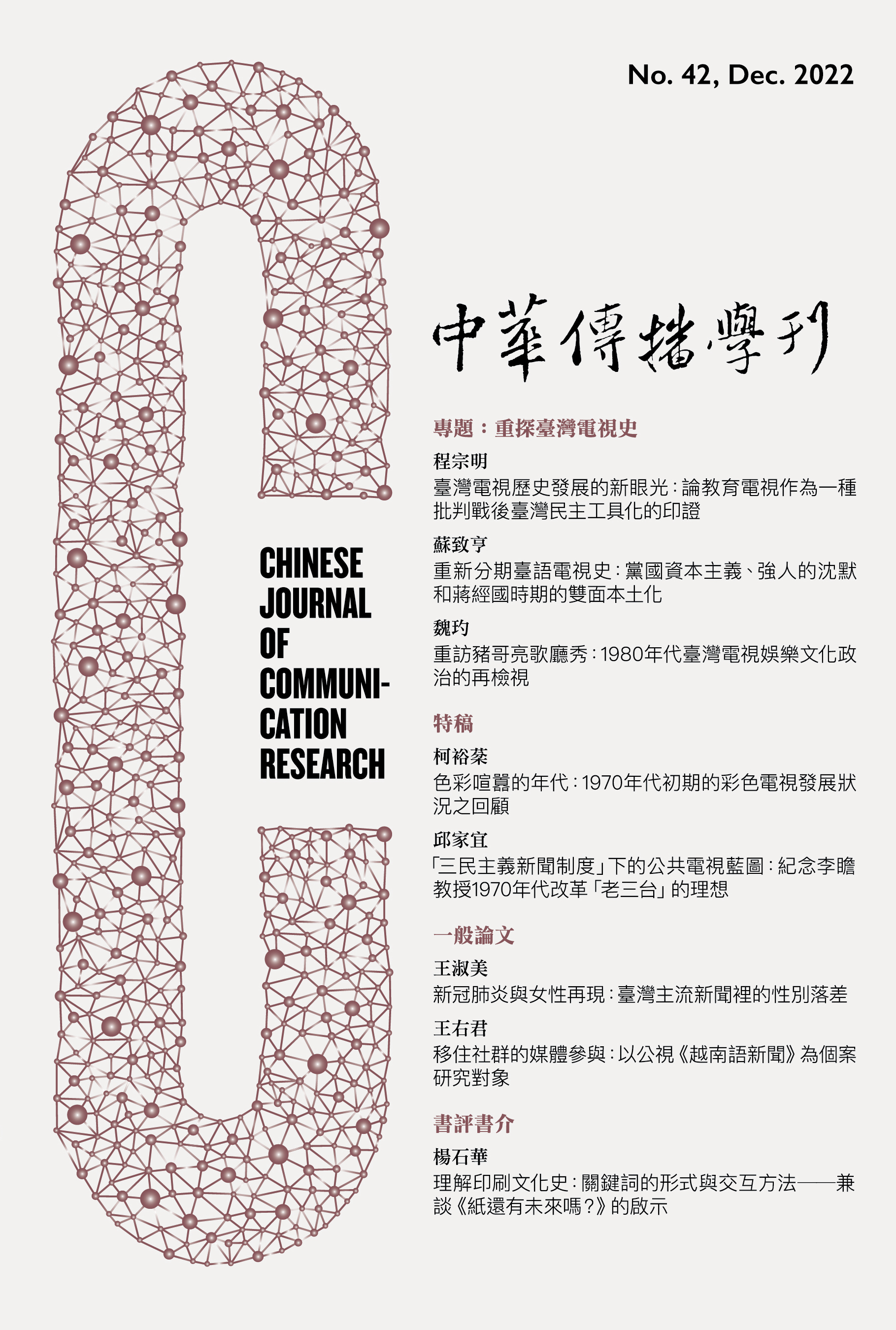 閱覽人數: 424
閱覽人數: 424
December
2022
No. 42
重探臺灣電視史
The History of Television in Taiwan, Revisited頁數:183 - 217
作者(中)
邱家宜
作者(英)
Eve Chiu
關鍵詞(中)
三民主義新聞制度、公共電視、李瞻、老三台、張繼高
關鍵詞(英)
Chang Ji Gao, Li Zhan, News System of the Three People’s Principles, Old Three Channels Television, Public Television
中文摘要
李瞻1970年代開始倡議公共電視,為臺灣傳播學界第一人。他反對老三台廣告競爭、節目品質低劣、方言節目過多,主張立法轉為公共電視。他在戒嚴與言論管制環境中,以「三民主義新聞制度」為實施公共電視的理論基礎,假設國家領導人道德、智慧必然高超,主張行政權主導,與1997年通過之《公共電視法》強調立法權不同。由於政治解嚴、社會民主化,已賦予「公共電視」不同脈絡,後繼倡議者,未奉李瞻為先驅,但同樣面對政治與經濟各種阻力。
英文摘要
In the 1970s, Li Zhan was the first to advocate the establishment of public television in Taiwan. Li Zhan believed that public television was the best television system for Taiwan. He opposed the advertising competition, low-quality programs, and dialect programs of the “old three television stations” and claimed to convert them into public television through legislation. He campaigned for public television realization under martial law, proposing the “Three People’s Principles News System” as the theoretical basis for such implementation. It assumed dictatorial leaders must be morally and intellectually superior and should play a leading role in public television although the 1997 Public Television Act emphasizes legislative approval. Taiwan’s social democratization has engendered a different context for “public television.” Consequently, subsequent advocates for the establishment of public television did not follow Li Zhan’s ideas when facing opposition from the political and economic sectors.